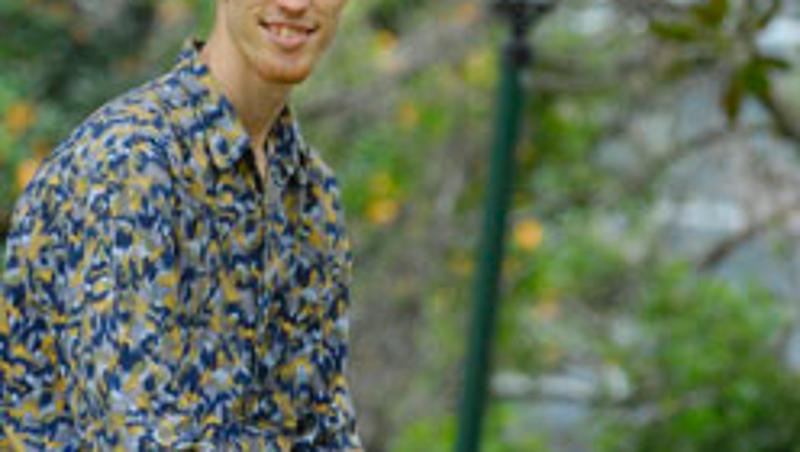
Concern for climate change doesn't always translate to action but a QUT student has helped research the problem of getting people to reduce, reuse and recycle.
Third year Creative Industries student Greg Young, who is majoring in Communication Design, received an eight-week Vacation Research Experience Scholarship to study ways to get people to motivate themselves to live sustainably.
"My project was to identify and critique any digital systems, applications or devices that use interaction design to go beyond informing and into motivating and encouraging people to act sustainably," Mr Young said.
"Creating a sustainable world requires a massive shift in our thinking, to re-evaluate the everyday lifestyle choices we make.
"This project required me to review psychology of motivation studies that inform various methods of motivating and supporting individuals to change their behaviour to a sustainable level."
He found studies arguing the key to self-motivation was to make sustainable behaviour "normative" or everyday.
"It needs to become socially commonplace to conserve energy," Mr Young said.
"We have seen the gradual shift against smoking - it is now not acceptable in many places. Smoking is viewed as anti-social as well as dangerous to your own health. But it has taken a long time.
"For example, we need to make unnecessary, high-energy consumption such as urban driving of 4WDs socially unacceptable and bike riding or using public transport the norm, and quickly."
Mr Young said one way to encourage change in the upcoming generation was to create digital education tools that prompted sustainable behaviours.
He is currently co-developing a 3D game-like environment based on a bleak future world scenario, aimed at mobilising young people.
"Rather than preaching doom and gloom, players experience the natural consequences of our actions on the environment, they can see what will happen if unsustainable activity continues. At the same time it shows what individuals can do to change their lifestyle right now," he said.
Mr Young said he had discounted schemes that rewarded acting sustainably or punished high-energy use because these only worked in the short term and did not create intrinsic self-motivation.
"Similarly, schemes such as smart metering which show individual energy could have the opposite effect because when people find an appliance is using less energy than expected, they may increase their usage."
Mr Young's project informed a 2009 ARC Discovery grant proposal by Dr Marcus Foth (Creative Industries), Professor Margot Brereton (BEE), Professor Paul Roe (FIT), Dr Christine Satchell (Creative Industries) and Dr Karl Mallon (Climate Risk Pty Ltd, Sydney) which is currently being reviewed by the Australian Research Council.
Media contact: Niki Widdowson, QUT media officer 07 3138 1841 or n.widdowson@qut.edu.au.




